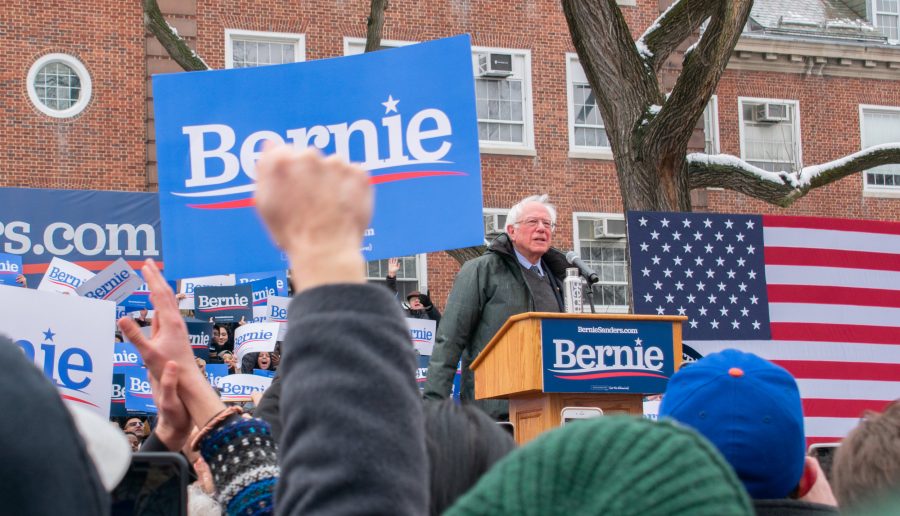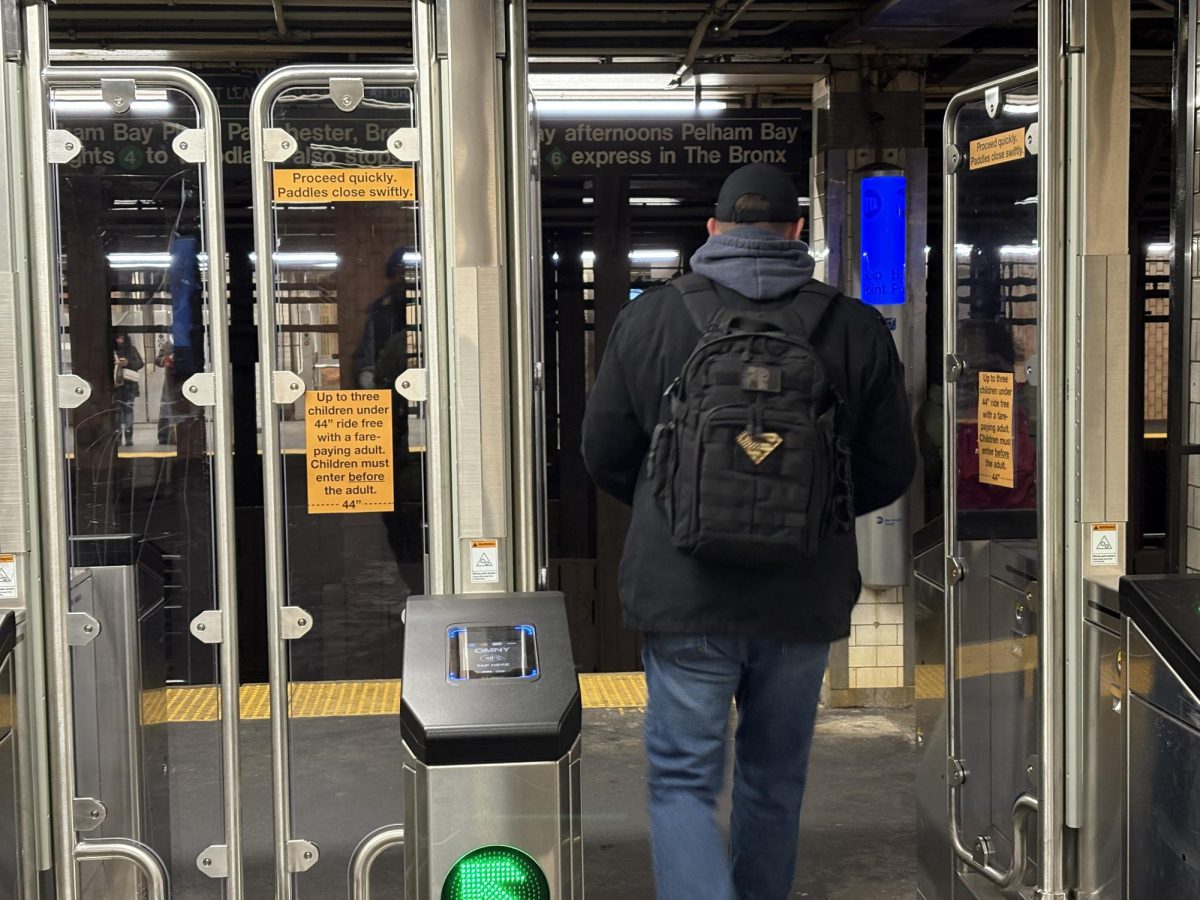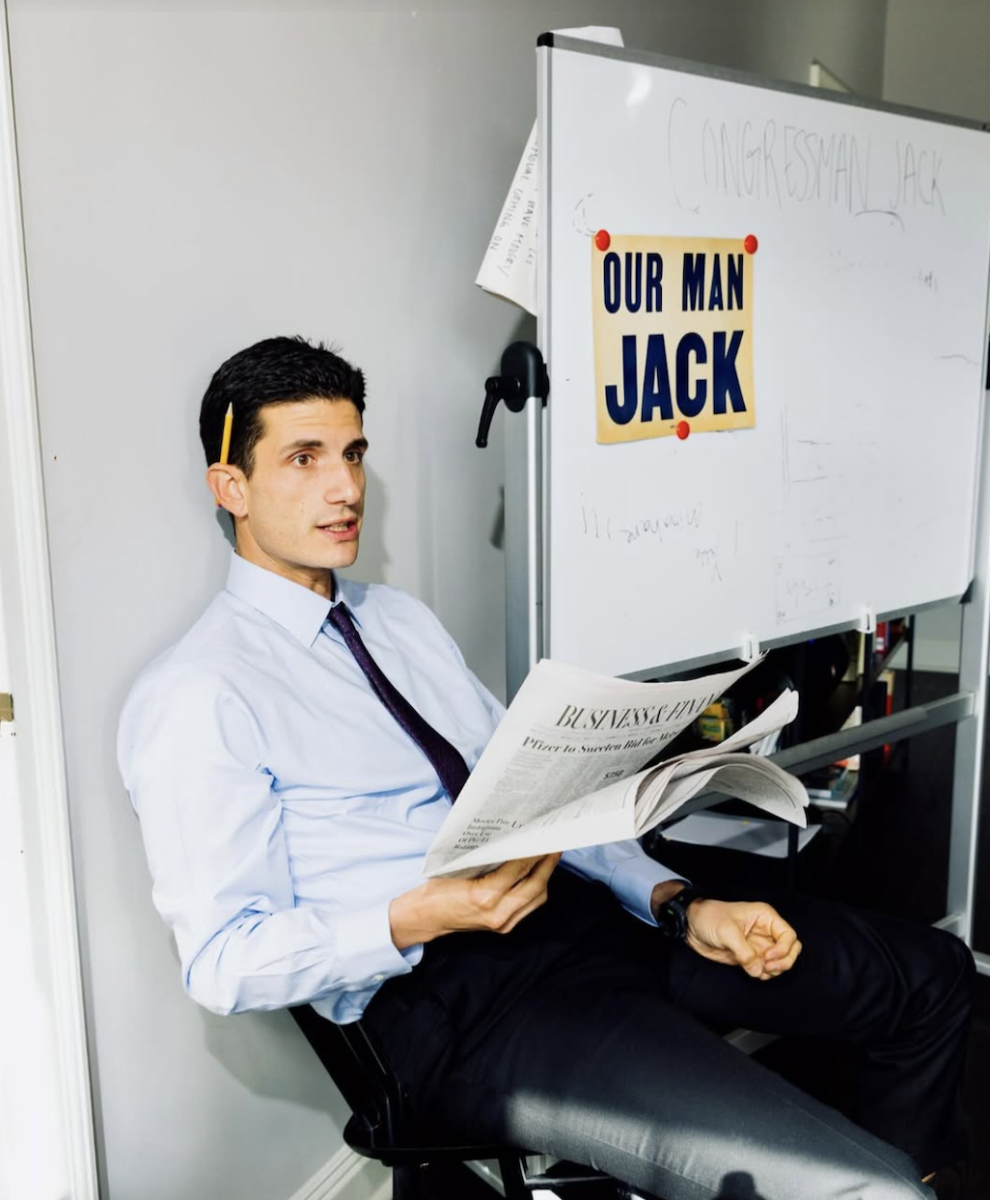Several speakers addressed the crowd before Sanders gave his speech. His wife, Jane O’Meara Sanders, was the first to speak. Other speakers included Ohio State Sen. Nina Turner, United Electric Local 506 President Scott Slawson, and journalist and activist Shaun King.
Turner fired up the crowd as she spoke about various topics, such as Dr. Martin Luther King Jr. and what Sanders accomplished during his time as a congressman. Slawson emphasized Sanders’ support for unionized workers during the United Electric strike in Erie, Pennsylvania, and Sanders’ immediate support for the strikers.
Shaun introduced Sanders and spoke about the senator’s time in the civil rights movement in Chicago.
He told stories about Sanders, like when he put up flyers around Chicago about police brutality. Shaun remembered seeing police officers following Sanders and taking the flyers down.
Shaun repeatedly said that Sanders refused to share these stories for a long time because he did not want his efforts in the civil rights movement to be used for political gain.
But now, Sanders’ campaign is trying to get more personal as compared to 2016. The campaign has already demonstrated this by organizing this rally in Brooklyn and a second rally a couple days later in Chicago.
When Sanders began speaking, the senator reiterated his 2016 platform: free college tuition, Medicare for all, women’s rights and climate change, to name a few.
Sanders attacked Trump numerous times and made sure to differentiate himself from the president by referring to his own father, who immigrated to the United States from Poland to escape the anti-Semitic atmosphere before the Holocaust.
“I did not have a father who gave me millions of dollars to build luxury skyscrapers, casinos and country clubs. … But I had something more valuable. I had the role model of a father who had unbelievable courage in journeying across an ocean, with no money in his pocket, to start a new and better life,” the senator said at the rally.
To juxtapose himself and the president, he brought up how differently they grew up, despite only being raised a borough away from each other. Sanders described his home in Midwood, Brooklyn.
He lived with his family in a rent-controlled apartment and he told the crowd his mother’s dream was to move out and buy a house of their own. Unfortunately, that dream never came true as his mother died during his first year of college.
“I am not going to tell you that I grew up in a home of desperate poverty,” he said. “That would not be true. But what I will tell you is that coming from a lower middle-class family I will never forget how money, or really lack of money, was always a point of stress in our home.”
Though there were people of all ages in the crowd, Sanders and the college setting drew in a mostly adolescent, diverse group. Several college students showed their support, including some students from Baruch College.
Baruch senior Marcus Ayala, 24, volunteered to help set up at the rally and direct the crowd. He said he also volunteered for the 2016 campaign.
“The main reason I support Bernie is because I trust him. He’s been fighting for the same things he’s fighting for now for his entire life,” Ayala said.
Becca Levy, 21, a senior at Hunter College, said she supports Sanders because she believes that democratic socialism is the only humane way to achieve equality.
Levy said that as a bisexual woman, she supported Sanders in 2016 and not Clinton because she was hurt by the anti-LGBTQ remarks the former secretary of state made in the past.
Troy Hogan, 21, another senior at Baruch, said he voted for Sanders in 2016 but is still undecided for the upcoming 2020 election. Since then, he’s supported Sanders and has followed his career as a senator.
Hogan said the reason he’s undecided is because of the numerous democratic candidates still in the running.
“I support Bernie and everything he’s doing,” said Hogan. “Everyone needs a fair shot.”








